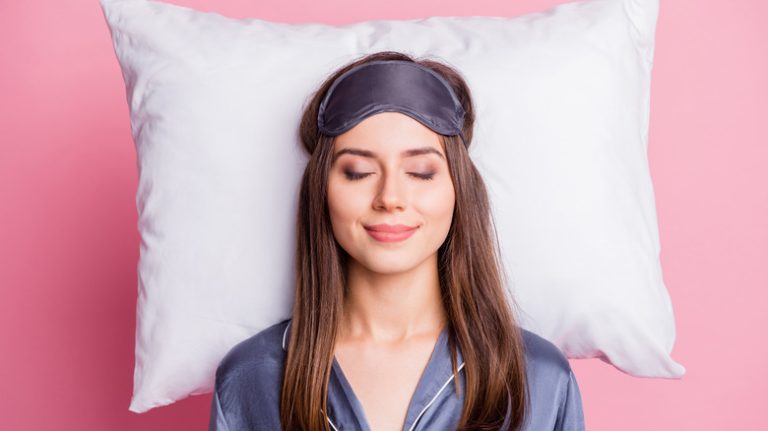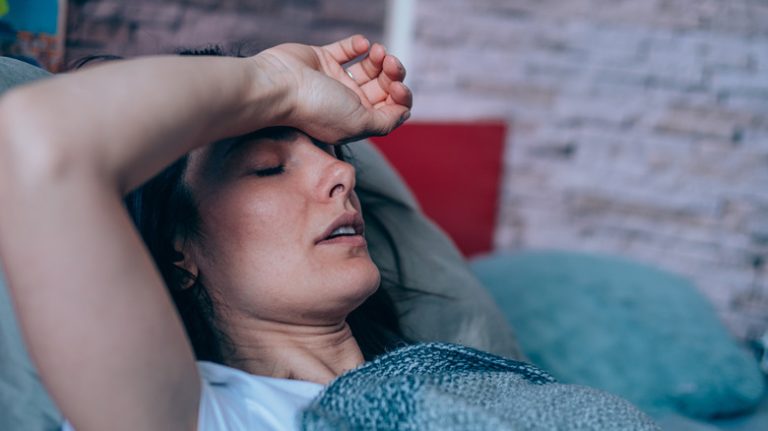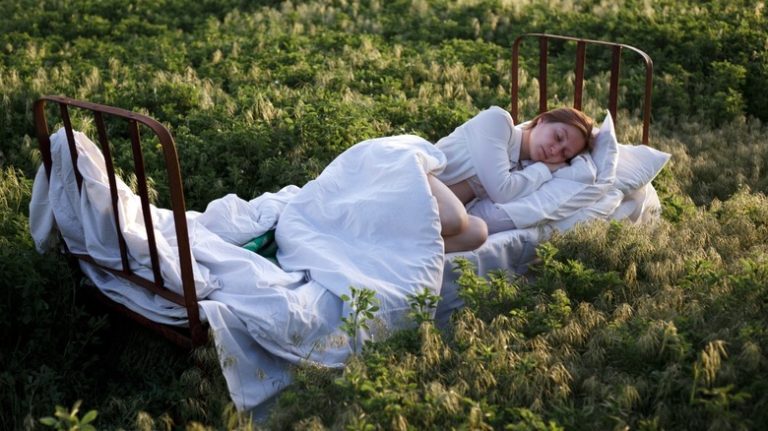Falling asleep at night can sometimes feel like an impossible feat. Whether you’re staring up at the ceiling thinking of that embarrassing thing you did five years ago or that tedious to-do list you have waiting for you in the morning, stress definitely does not bode well for getting some rest. “Just the thought of not sleeping can make anyone anxious!” licensed clinical psychologist Dr. Jodi J. De Luca told Health Digest. “The anxiety associated with prolonged periods of not being able to fall asleep or stay asleep can launch a vicious cycle of psychological and physical problems.”
While stress is definitely something you don’t need to add to your lengthy list of things to worry about, there could still be other things affecting your chances of hitting the hay. It may be something as simple as adjusting the thermostat or even eating some chocolate. Yep, you read that right. If you find yourself daydreaming of falling asleep instead of actually sleeping, you’re going to want to read on for some of the most surprising reasons you’re having trouble drifting off into dreamland.
Blue lights may be keeping you up at night
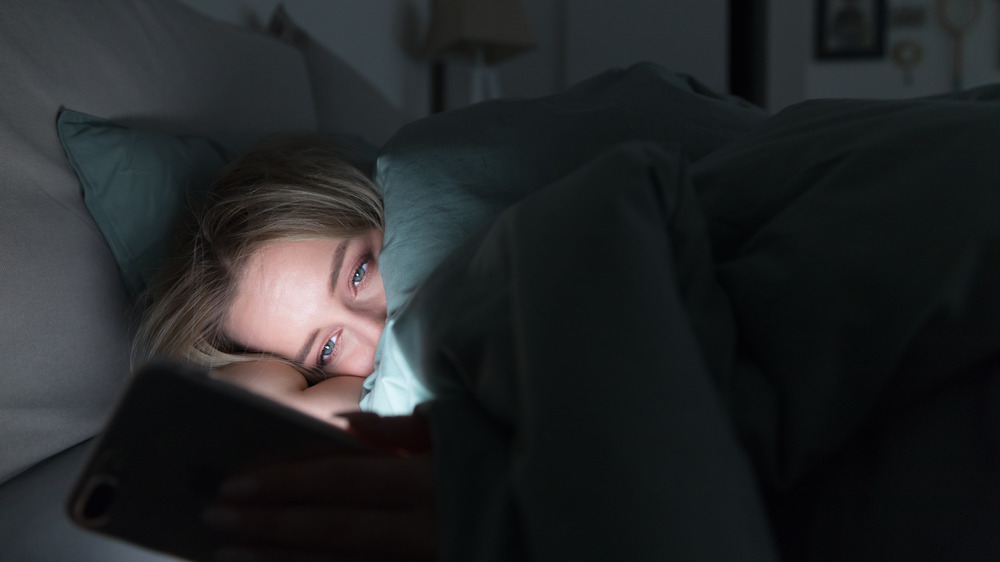
No one should scroll through emails on their phone before bed. This can keep you awake thinking of work instead of sawing logs. However, there’s also another important reason why you can’t sleep after using your phone. “Screens on phones, tablets and computers emit primarily blue light, which suppresses melatonin levels,” Dr. Leigha Saunders, a licensed naturopathic doctor, explained to Health Digest. Melatonin is what’s necessary for falling asleep each and every night. Surprisingly, staring at a screen for 30 minutes before bedtime can nearly cut our melatonin levels in half!
Here’s the science behind it: When the sun rises, it releases blue light that alerts our bodies to wake up. When the sun sets each evening, the levels of blue light decrease, which signals our bodies to slow down in order to sleep. By staring at other blue lights at night, our bodies are wanting to wake up instead of wind down.
If you can’t help but sneak a peek at your emails before bed, “try installing a blue light filter on your devices,” physician Dimitar Marinov recommended. “It will reduce the negative effects and improve your sleep.”
You may have the wrong mattress if you can’t fall asleep at night
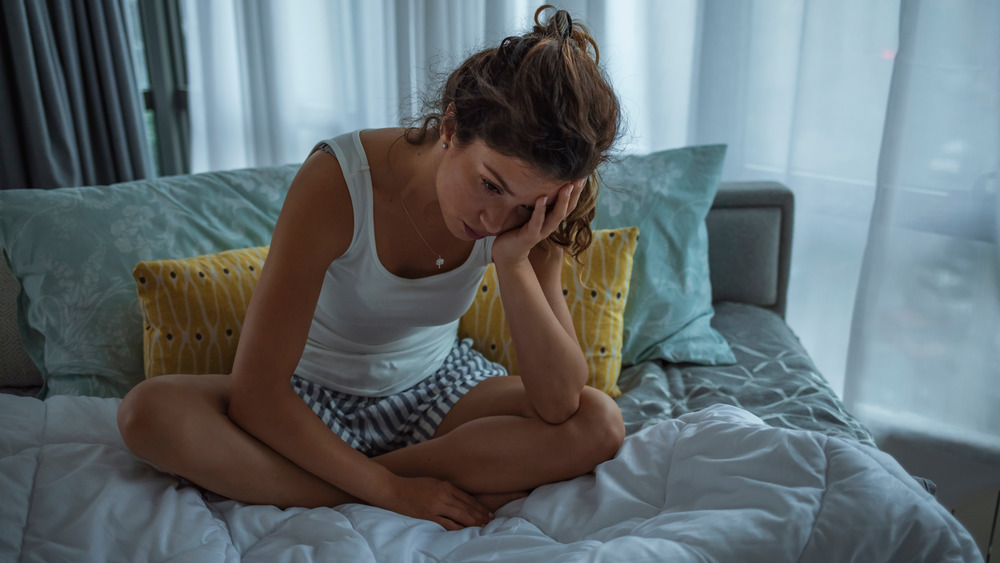
We all look forward to falling into our beds and falling asleep at the end of a long day. However, if you can’t get comfortable enough to fall asleep, it could be your mattress that’s seriously sabotaging your snoozing.
One study published in Sleep Science in 2024 found that a “medium-firm mattress” helped participants reduce the amount of body aches and pains they experienced at night. However, while this mattress may have helped many of them achieve a nice night’s sleep, it’s really dependent on the individual. “It’s important to understand if you are generally a back or side sleeper,” dual board-certified psychiatrist and sleep medicine specialist Dr. Alex Dimitriu told Health Digest. “Side sleepers do well with softer mattresses, and back sleepers do well with stiff mattresses.”
While your mattress may have always treated you right before, it could still be time to get a new one. The Sleep Foundation recommends replacing it every six to eight years. Since we all spend a third of our lives in bed, it’s important to feel comfortable.
Drinking caffeine earlier in the day could be keeping you awake at night
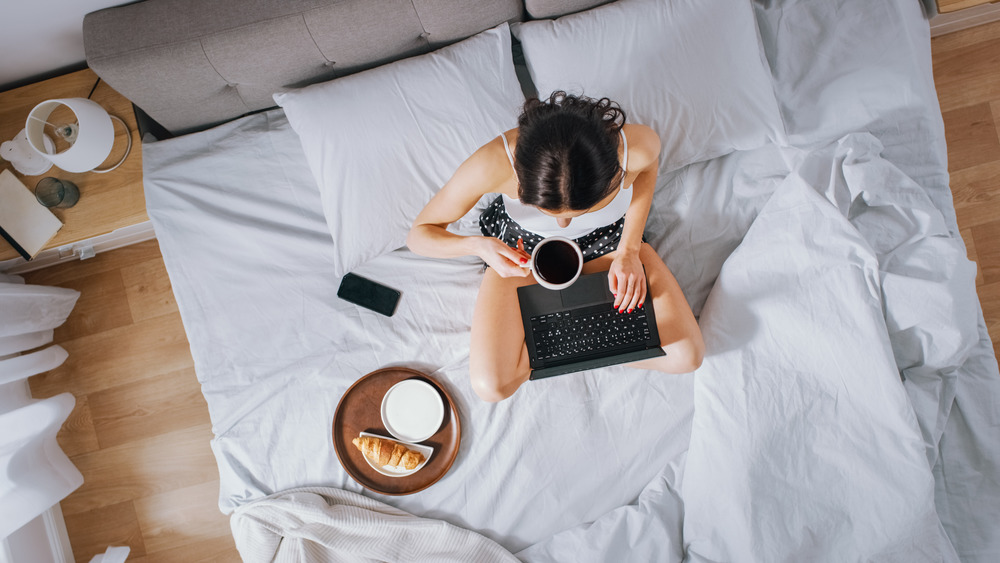
Shutterstock
While caffeine can be helpful at keeping you up in the morning hours, it can also be affecting how quickly you are able to fall asleep at night. Unfortunately for us, it doesn’t even matter if you aren’t drinking the stuff right before bedtime. “Drinking a coffee in the late afternoon will still leave half of the caffeine in your system by bedtime,” physician Dimitar Marinov told Health Digest. This can leave you more restless than relaxed when it comes to sleeping.
Since caffeine is a stimulant, it keeps us energized, and its effects last long after we consume it. The half-life of a cup of caffeine can last five hours after you drink it. “That means that five hours after ingestion, half is still in your system,” physician and assistant professor at Yale University Janet Hilbert told us. So if you find yourself in a vicious cycle of turning to caffeine in the day because you couldn’t sleep at night, it may be time to quit the cup.
If you aren’t exercising, you probably aren’t falling asleep easily
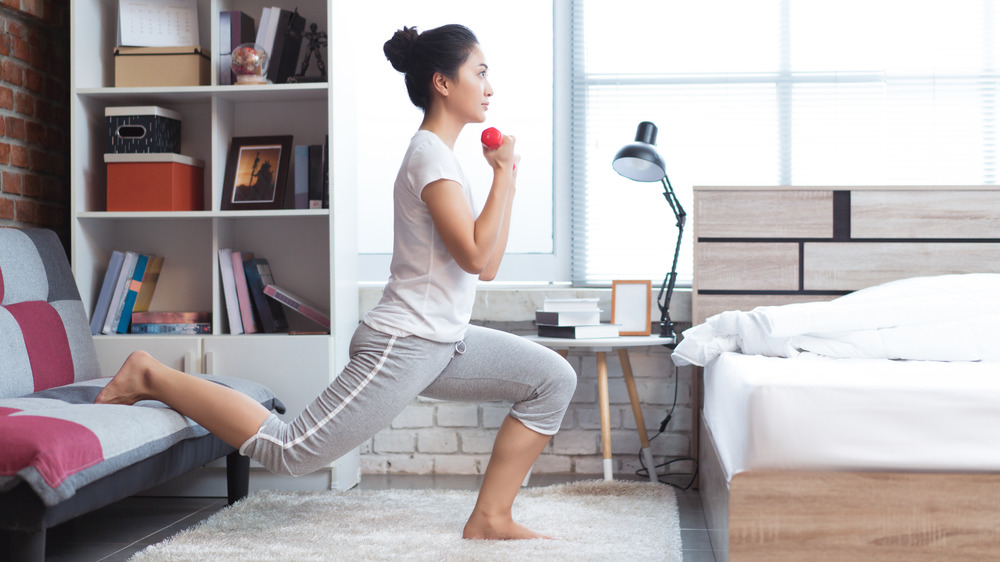
Shutterstock
While working out may seem like the last thing you should be doing to get some decent dozing done, it actually could work wonders. “I think one of the most important factors around sleep that doesn’t get enough attention is the connection between physical exercise and sleep,” Dr. Peter Bailey, a family practice physician, told Health Digest.
When our bodies are at work, they release hormones that help relax our minds before resting, “making it easier to naturally transition to sleep,” the doctor explained. In fact, exercising for only 30 minutes each day has been shown to increase the amount of deep sleep we get by 31 percent. It doesn’t have to be a mile run either. “This can be as simple as a walk around the neighborhood or playing with your kids,” Dr. Bailey said. “Almost any sort of physical exercise will help your sleep to some degree.”
Your medication may be interfering with your sleep
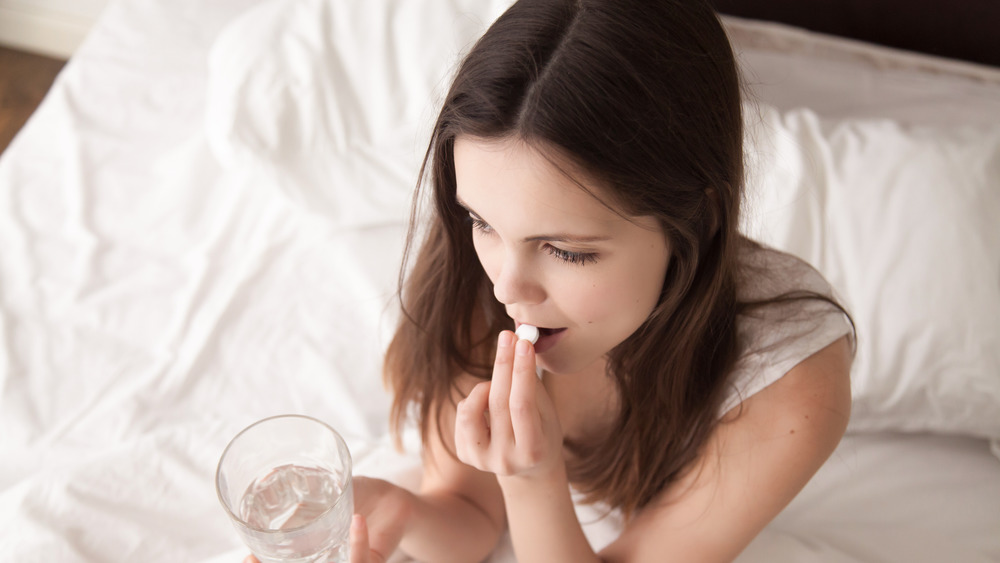
Shutterstock
Your prescription medication is supposed to make you healthier, so it should help you snooze too, right? Unfortunately, this isn’t always the case. “Many medications and substances can interfere with falling asleep or staying asleep, even hours after use,” Dr. Janet Hilbert, physician and assistant professor at Yale University, told Health Digest.
There are several common medications out there that are stimulants, keeping some from getting the shut eye they so desperately need. Decongestants that help us fight a cold, for example, can keep us up at night — and we need the rest if we want to get better! Prescription medication for attention deficit disorder, some asthma treatments, and steroids can also be putting a halt to sleep, depending on when they’re taken. Even “antihistamines taken for allergies may increase restless legs in susceptible individuals,” Dr. Hilbert told us.
While this may be the case, you don’t need to completely desert your meds in order to drift off more easily. It may just be helpful to take your medications early in the morning to avoid losing sleep later on.
The temperature of your room could be all wrong for falling asleep
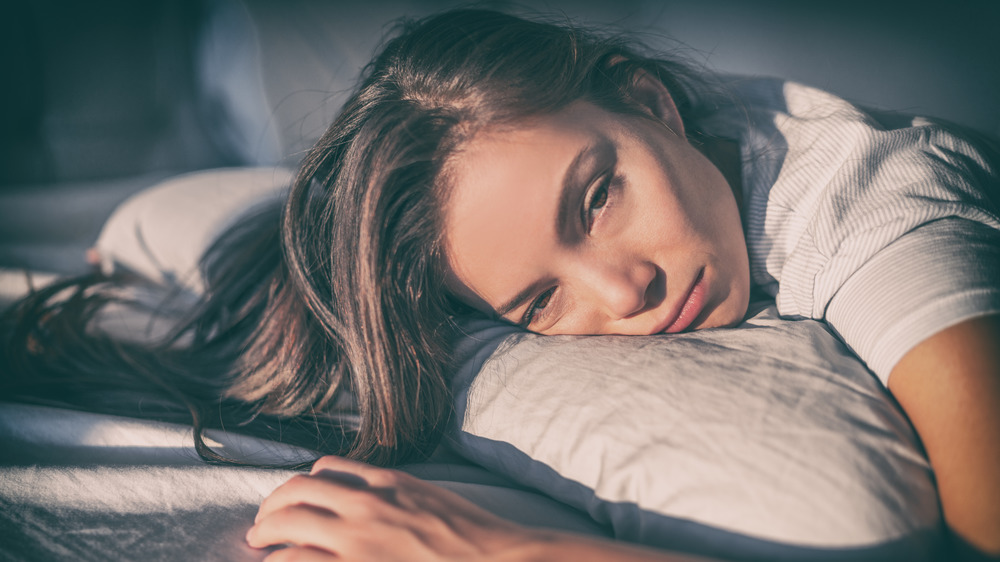
Shutterstock
Sure, your bedroom may be dark and quiet, but there’s still something that could be missing. “Research reveals that room temperature has an even larger impact on sleep than noise,” physician Dimitar Marinov revealed to Health Digest. A perfect example of this, he said, is a study published in Sleep. Hotter bedrooms were found to decrease the total amount of sleep participants were getting each night. The best temperature for sleeping, Dr. Marinov said, is between 64 and 68 degrees Fahrenheit.
Yes, even if you’re perfectly comfortable with 70-degree weather during the day, you should consider turning the thermostat down at night. “Your body’s temperature declines as bedtime approaches,” Dr. Marinov explained to us. Although that may have you thinking you should turn up the heat in your bedroom, the science assures us that you’ll fall asleep more easily if you turn it down.
If you smoke, you may have trouble falling asleep
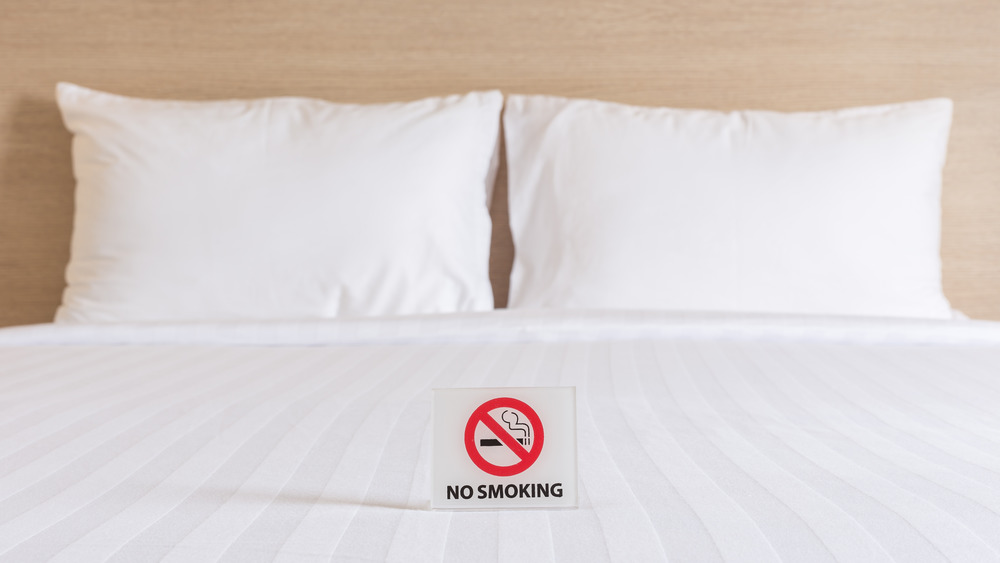
Shutterstock
We all know that smoking isn’t good for the lungs, but it could be what’s keeping you up late at night too. While many people turn to cigarettes in order to calm them down, “nicotine in cigarettes can have a stimulating effect,” Dr. Alex Dimitriu, dual board-certified psychiatrist and sleep medicine specialist, exclusively told Health Digest. “And thus smokers may have a hard time falling asleep after a cigarette.”
Even if you do happen to fall asleep fast, don’t expect it to stay that way for long. People who smoke have a harder time staying asleep throughout the night, too. Since cigarettes are so addictive, the craving for more nicotine can keep people awake throughout the night.
According to the American Sleep Association, smoking can also lead to respiratory illnesses that can make it hard to breathe at bedtime. This can turn into a serious long-term issue that can lead to sleep apnea and snoring. If you find that you’re losing out on some snoozing, quitting smoking may help.
If you have trouble falling asleep at night, you could have a thyroid disorder
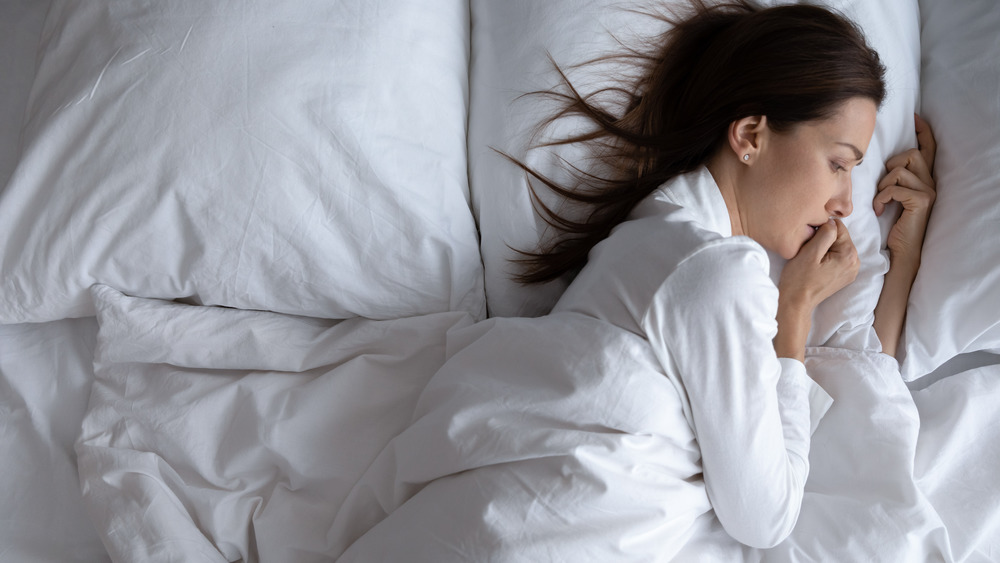
Shutterstock
If you find yourself having problems falling asleep, your thyroid may be the culprit that’s stealing it away from you. This small gland is responsible for releasing hormones throughout our bodies, and if these chemicals become imbalanced, your sleep could seriously suffer.
According to the Sleep Foundation, one in 100 people suffer from hyperthyroidism. This happens when your thyroid is making way too many hormones. The condition can stimulate the body, making it nearly impossible to fall asleep. Hyperthyroidism “may cause jitteriness, restlessness, and insomnia,” physician and assistant professor at Yale University Janet Hilbert explained to Health Digest. Not only can this influx of hormones make it hard to fall asleep, but it can make it harder to stay asleep too.
Luckily, treating your thyroid can be as simple as having medication prescribed by a medical professional. Then, your body may finally be able to get the rest it needs.
You may have a magnesium deficiency if you have trouble falling asleep
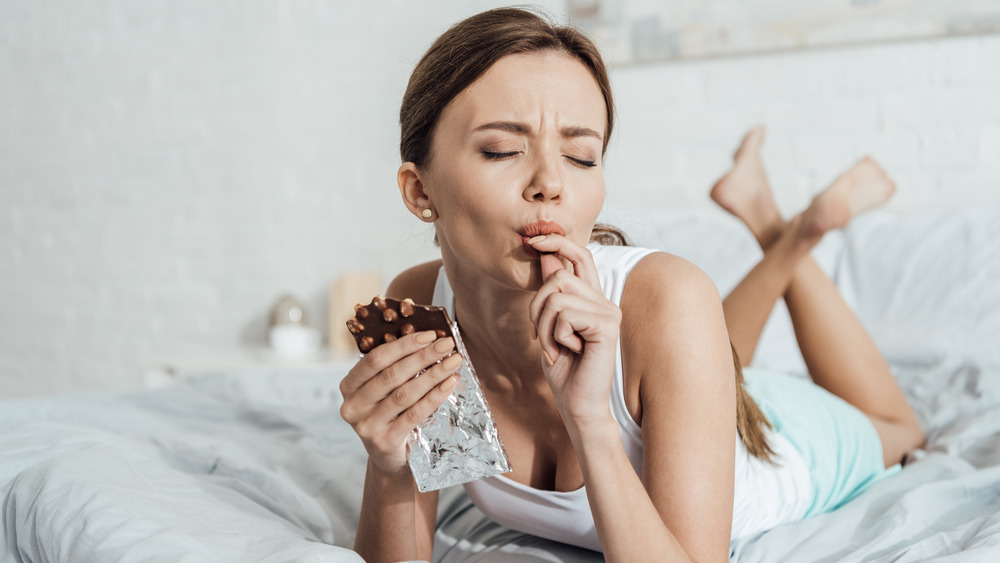
Shutterstock
If you’d like to fall asleep faster, look no further than magnesium. “Magnesium is a rarely considered mineral that plays many roles in the body,” registered dietitian Trista Best told Health Digest. And yet, this small mineral is responsible for hundreds of different functions — falling asleep being one of them.
Magnesium is responsible for regulating hormones in our bodies that help our brains to relax before we lay down to rest. And even after we have finally fallen asleep, magnesium helps us to stay that way. Eating foods that contain this mineral can also help us from developing digestive disorders that can hold us back from hitting the sack. “While it is a small nutrient, a deficiency has significant implications,” Best said.
So if you find it hard to fall asleep, munch on some magnesium-rich foods. Best recommends indulging in avocado, tofu, nuts, or even dark chocolate. Yes, chocolate. It gives a whole new meaning to sweet dreams.
If you can’t fall asleep easily, you may be going through menopause

Shutterstock
Falling asleep can get harder as we age. If you’re experiencing hot flashes and trouble falling asleep, these can be markers for menopause. While you may be dismissing this idea if you haven’t actually made it to menopause yet, it could be a sign that it’s on its way. These hormone imbalances can hinder your efforts at falling asleep. “Women who are experiencing declining levels of progesterone and estrogen in the pre-menstrual, peri-menopausal or menopausal stages can experience difficulty falling and staying asleep,” Dr. Leigha Saunders, a licensed naturopathic doctor, told Health Digest. These hormone imbalances can make menopause — or even just your time of the month — even worse as it relates to sleeping.
In fact, women are almost two times more likely to suffer from insomnia due to their monthly changes in hormones. Having trouble falling asleep can be a way that your body is telling you your hormone levels are too low, specifically estrogen and progesterone. To fix this and make it easier to fall asleep, Dr. Saunders recommends beginning by tracking your sleep each month to see if there’s a recurring pattern.
Working from your bed may make i hard for you to fall asleep at night

Shutterstock
If your bed is doubling as your desk space, you may want to seriously think about investing in a desk ASAP. “A critical component to a better night’s sleep is to make sure that your brain is conditioned to associate your bed as a place for rest and sleep,” licensed clinical psychologist Dr. Jodi J. De Luca told Health Digest.
When you associate your bed with work calls and emails, you’ll likely be focused on your to-do list rather than falling asleep. “Take these activities outside of the bedroom to increase your ability to fall asleep fast,” Dr. Leigha Saunders, a licensed naturopathic doctor, told us. Your bed should be a place to rest your head and relax. Anything else that requires your utmost attention should always be done outside of the bedroom. “Besides sex!” Dr. Saunders clarified.
A change in the weather can make it harder to fall asleep fast
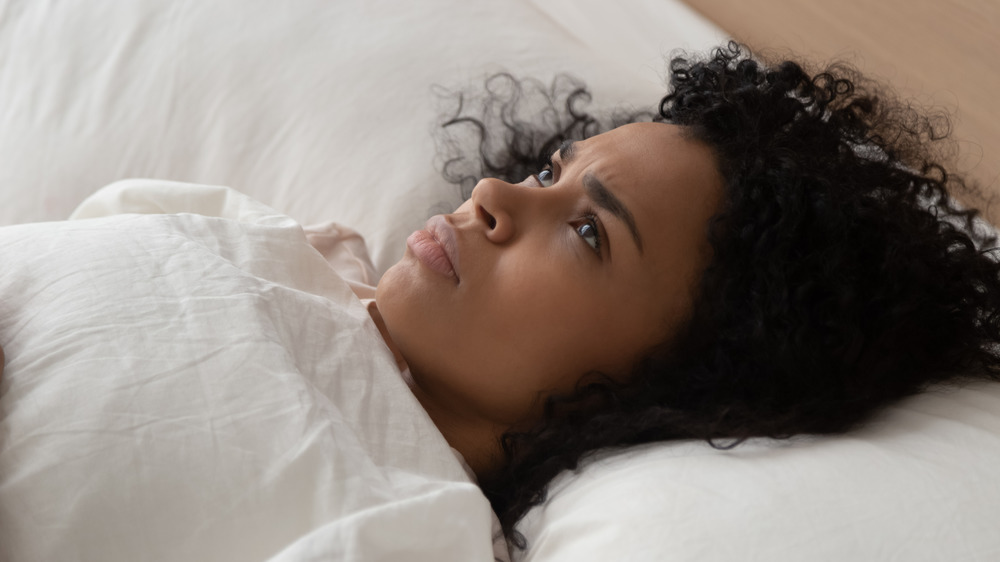
Shutterstock
Rainy days have many of us wanting to snuggle up in our beds for a deep slumber, but the change in weather could be what’s causing you to toss and turn all night. For starters, when winter rolls around, humidity in the air decreases. This drop in moisture can have quite an effect on the respiratory system, which can make breathing even harder. “This is especially dangerous for those who suffer from sleep apnea,” sleep specialist Dr. Daniel Rifkin told Health Digest. At the opposite end of the year, the hot summer months can heat up our bodies and make it hard to fall asleep, too.
Dr. Rifkin’s study on the subject, published in Sleep Medicine Reviews in 2024, found even more connections between climate change and trouble sleeping. Extreme weather, such as hurricanes, tornadoes, and earthquakes, can cause stress in our bodies that can make it more difficult to sleep. Yes, sometimes your ability to fall asleep is totally out of your hands.
You may be eating too late if you have trouble falling asleep
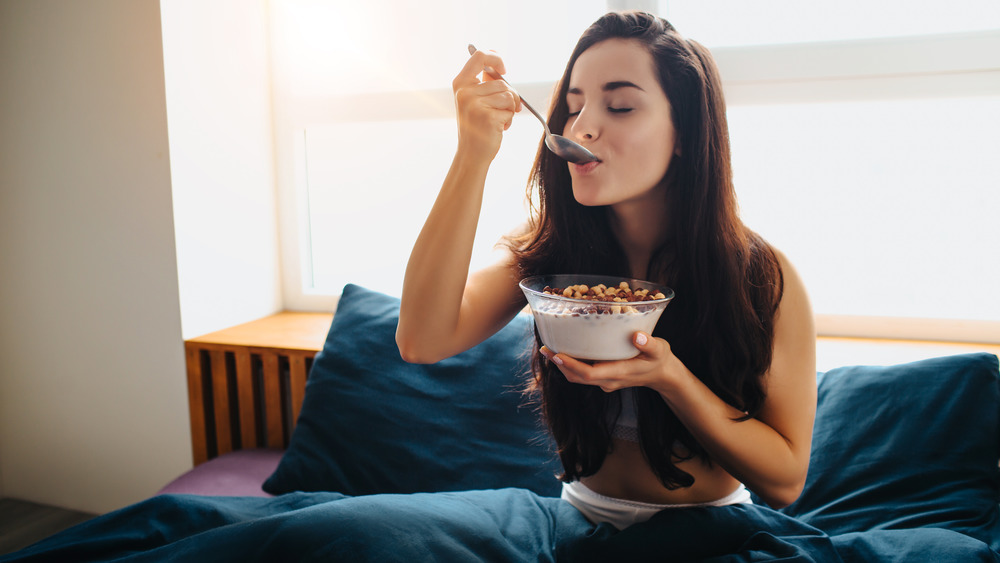
Shutterstock
It’s no fun being hungry when you’re headed to bed, but your late-night snacking could seriously be hurting your snoozing. “As we rest, the body tries to rebuild and repair, and digestion tends to take the back seat,” registered dietitian Gabrielle Tafur told Health Digest. If you’re eating too late, your mouthwatering meal could be sitting in your stomach all night long. As such, it’s important to stop eating two to three hours before bedtime.
If you find yourself feeling hungry before hitting the sack, know that your body will be most satisfied eating a meal that’s full of healthy fats. A bit of protein is okay, but too much can cause us to feel uncomfortable once we lie down. Tafur also advised cutting back on the carbs. “As we likely do not need any large, immediate energy in the form of carbohydrates, we want to prevent the body from storing this into fat if we do not use it while we sleep,” she said.
You need a nighttime routine if you want to fall asleep faster
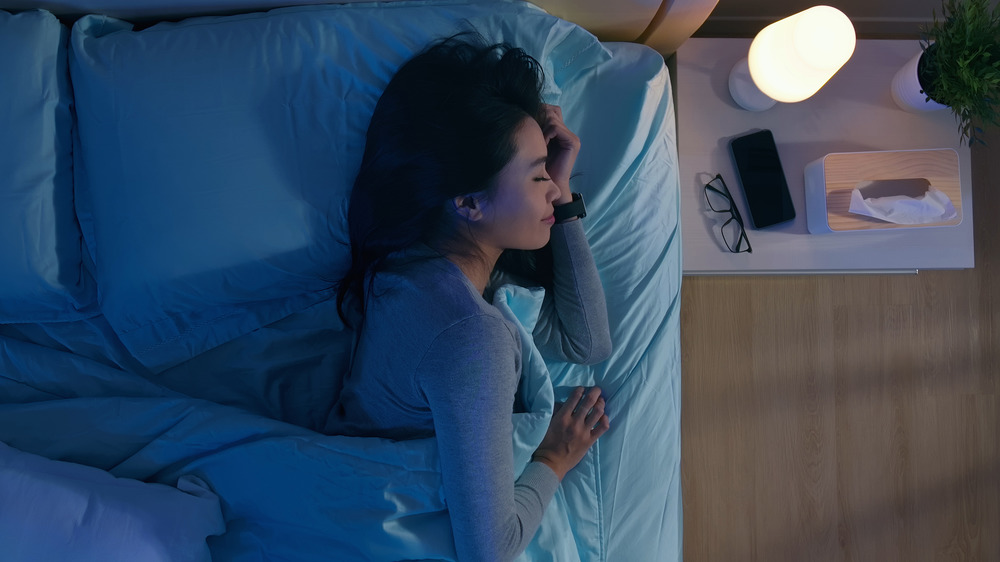
Shutterstock
If you’re feeling restless once you lay down every night, you’re probably in need of a routine. “Irregular sleeping patterns and schedules can lead to trouble falling asleep and even staying asleep,” licensed clinical psychologist Dr. Jodi J. De Luca explained to Health Digest. That’s why it’s important to go to bed and wake up at the same time every day. Yes, even on the weekends.
With the hustle and bustle of our day-to-day lives, it can be hard to establish a habitual bedtime. That’s when an evening routine can come even more in handy. “Establishing daily and evening routines help to condition our brains to know when to power up and prepare for the day ahead of us, and when to power down and prepare for rest, relaxation, and sleep,” Dr. De Luca said. A routine could include something as simple as brushing your teeth, taking a bath, or, you know, reading the newest article on Health Digest — with a blue light filter on your phone, of course. Sweet dreams!

